25 start with N start with N
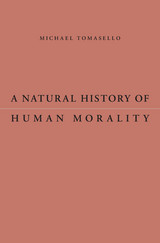
Winner of the Eleanor Maccoby Book Award in Developmental Psychology, American Psychological Association
Winner of a PROSE Award, Association of American Publishers
Shortlist, Cognitive Development Society Book Award
A Choice Outstanding Academic Title of the Year
A Natural History of Human Morality offers the most detailed account to date of the evolution of human moral psychology. Based on extensive experimental data comparing great apes and human children, Michael Tomasello reconstructs how early humans gradually became an ultra-cooperative and, eventually, a moral species.
“Tomasello is convincing, above all, because he has run many of the relevant studies (on chimps, bonobos and children) himself. He concludes by emphasizing the powerful influence of broad cultural groups on modern humans… Tomasello also makes an endearing guide, appearing happily amazed that morality exists at all.”
—Michael Bond, New Scientist
“Most evolutionary theories picture humans as amoral ‘monads’ motivated by self-interest. Tomasello presents an innovative and well-researched, hypothesized natural history of two key evolutionary steps leading to full-blown morality.”
—S. A. Mason, Choice

Germain Grisez has been a leading voice in moral philosophy and theology since the Second Vatican Council. In this book, such major thinkers as John Finnis, Ralph McInerny, and William E. May consider issues in ethics, metaphysics, and politics that have been central to Grisez's work.
Grisez's reconsideration of the philosophical foundations of Christian moral teaching, seeking to eliminate both legalistic interpretation and theological dissent, has won the support of a number of leading Catholic moralists. In the past decade, moreover, many philosophers outside of Catholicism have weighed carefully Grisez's alternatives to theories that have long dominated secular moral philosophy.
This book presents a broad spectrum of viewpoints on subjects ranging from contraception to capital punishment and considers such controversies as the scriptural basis of Grisez's work his interpretations of Aquinas, and his new natural law theory. The collection includes not only contributions from Grisez's supporters but also from critics of his thought, from proportionalist Edward Collins Vacek, SJ, to the neo-Thomist Ralph McInerny. A reply by Grisez, written with Joseph M. Boyle Jr., addresses the issues and viewpoints expressed, while an afterword by Russell Shaw reviews Grisez's pioneering work and conveys a vivid sense of the philosopher's personality.
As Grisez's influence grows, this volume will serve as an important touchstone on his contributions to moral and political philosophy and theology.

"Public reason" is one of the central concepts in modern liberal political theory. As articulated by John Rawls, it presents a way to overcome the difficulties created by intractable differences among citizens' religious and moral beliefs by strictly confining the place of such convictions in the public sphere.
Identifying this conception as a key point of conflict, this book presents a debate among contemporary natural law and liberal political theorists on the definition and validity of the idea of public reason. Its distinguished contributors examine the consequences of interpreting public reason more broadly as "right reason," according to natural law theory, versus understanding it in the narrower sense in which Rawls intended. They test public reason by examining its implications for current issues, confronting the questions of abortion and slavery and matters relating to citizenship.
This energetic exchange advances our understanding of both Rawls's contribution to political philosophy and the lasting relevance of natural law. It provides new insights into crucial issues facing society today as it points to new ways of thinking about political theory and practice.
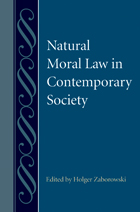

Today the majority of philosophers in the English-speaking world adhere to the "naturalist" credos that philosophy is continuous with science, and that the natural sciences provide a complete account of all that exists--whether human or nonhuman. The new faith says science, not man, is the measure of all things. However, there is a growing skepticism about the adequacy of this complacent orthodoxy. This volume presents a group of leading thinkers who criticize scientific naturalism not in the name of some form of supernaturalism, but in order to defend a more inclusive or liberal naturalism.
The many prominent Anglo-American philosophers appearing in this book--Akeel Bilgrami, Stanley Cavell, Donald Davidson, John Dupré, Jennifer Hornsby, Erin Kelly, John McDowell, Huw Price, Hilary Putnam, Carol Rovane, Barry Stroud, and Stephen White--do not march in lockstep, yet their contributions demonstrate mutual affinities and various unifying themes. Instead of attempting to force human nature into a restricted scientific image of the world, these papers represent an attempt to place human nature at the center of renewed--but still scientifically respectful--conceptions of philosophy and nature.
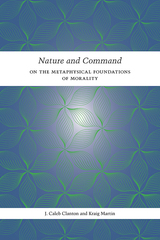
Since at least the time of Plato, religious explanations of the metaphysical foundations of morality have typically fallen into one of two camps: natural law theory, according to which morality is fundamentally explained by facts about human nature—facts that God is responsible for—and divine command theory, which holds that moral obligations arise directly from God’s commands or some other prescriptive act of the divine will. J. Caleb Clanton and Kraig Martin offer an accessible analysis of these traditional views, reconstruct the various arguments for and against them, and offer an extended consideration of the historical emergence of the divide between these positions within the Christian tradition. Nature and Command goes on to develop and defend a theory that combines these two views—a metaethical approach that has not yet received the scholarly attention it deserves.
Along the way, the authors make use of underexplored theological resources drawn from the Stone-Campbell movement, a nineteenth-century restoration movement that culminated in one of the largest Protestant groups in America by the dawn of the twentieth century. Nature and Command summons the resources of this particular Christian heritage—its first principles, call for unity, and ecumenism—to solve one of the great dilemmas of moral philosophy and theology dating back to Plato’s Euthyphro.
This historically aware, argumentatively rigorous, and highly readable volume will serve as a valuable resource for moral philosophy and ethics, as well as for mining the Stone-Campbell Restoration tradition for historical and theological insights.
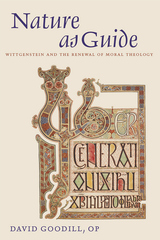
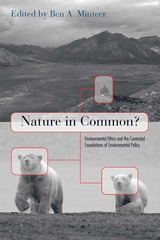
This important book brings together leading environmental thinkers to debate a central conflict within environmental philosophy: should we appreciate nature mainly for its ability to advance our interests or should we respect it as having a good of its own, apart from any contribution to human well-being? Specifically, the fourteen essays collected here discuss the “convergence hypothesis” put forth by Bryan Norton—a controversial thesis in environmental ethics about the policy implications of moral arguments for environmental protection. Historically influential essays are joined with newly-commissioned essays to provide the first sustained attempt to reconcile two long-opposed positions. Bryan Norton himself offers the book’s closing essay.
This seminal volume contains contributions from some of the most respected scholars in the field, including Donald Brown, J. Baird Callicott, Andrew Light, Holmes Rolston III, Laura Westra, and many others. Although Nature in Common? will be especially useful for students and professionals studying environmental ethics and philosophy, it will engage any reader who is concerned about the philosophies underlying contemporary environmental policies.
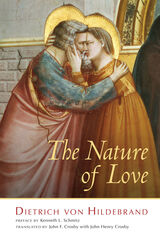

In the West, humans tend to separate themselves from nature, valuing nature only as a means of meeting their own needs and happiness. This domination of nature often fosters human oppression instead of freedom and progress, as those who ignore abuses of nature tend to disregard human injustice as well. Peter S. Wenz argues that this oppression involves such destructive forces as sexism, ethnic strife, and political repression, including repression of the nuclear power industry's victims. Catastrophes like the Holocaust and the Gulf War are the result.
In contrast to the destructive "separate from nature" attitude, Wenz looks to various indigenous peoples as an example of societies where human beings revere nature for itself--societies where human beings flourish as individuals, in families, and in communities. Unlike societies dependent on commerce and industry, many indigenous peoples consider themselves part of a circle of life, reaping benefits far greater than the technological advances of the West. Wenz considers how to adopt the perspective of some indigenous cultures and how to make it work in our fast-food world. Additionally, he uses a trip to the World Uranium Hearings in Salzburg as a vehicle for understanding complex philosophical issues from consumerism to anthropocentrism.
In the series Ethics and Action, edited by Tom Regan.
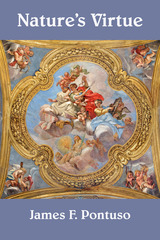
Yet virtue seems to be a part of everyday life. What accounts for the kindly relationships between people? Why are most people peaceful, law abiding, and decent? If, as some insist, there is no foundation for virtue, or people act only out of self-interest, how can we explain why so many people are good to each other?
Prestigious scholars, such as Alasdair MacIntyre, After Virtue, James Q. Wilson, The Moral Sense, Steven Pinker, The Better Angels of Our Nature, and Philippa Foot, Natural Goodness, have attempted to answer this question. While these authors make great strides in explaining the character of goodness, their works do not face the problem raised by “anti-foundationalist.” Anti-foundationalist such as Richard Rorty, Friedrich Nietzsche, Martin Heidegger, and the libertarian school of economics maintain that humans lack a capacity for comprehending what is good or bad. For anti-foundationalists there are no higher metaphysical principles that guide behavior. Prescriptive judgments are little more than long-held cultural prejudices fortified by habit so as to seem natural. Therefore, philosophic claims about virtue are little more than guesses about proper conduct.
Nature’s Virtue squarely faces the challenge of anti-foundationalists. The book points out the defects of these ideas. It does so by presenting a contemporary restatement of the case for grounding virtue in Platonic forms or ideas.
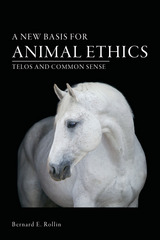

New Directions in Private Law Theory brings together some of the best new work on private law theory, reflecting the breadth of this increasingly important field. The authors adopt a variety of different approaches and contribute to ongoing and important debates about the moral foundations of private law, the individuation of areas of private law, and the connections between private law and everyday moral experience. Questions addressed include: does the diversity identified among claims in unjust enrichment mean that the category is incoherent? Are claims in tort law always about compensating for wrongs? How should we understand the parties’ agreement in a contract? The contributions shed new light on these and other topics and the ways in which they intersect and open up new lines of scholarly inquiry.
This book will be of interest to researchers working in private law and legal theory, but it will also appeal to those outside of law, most notably researchers with an interest in moral and political philosophy, economics, and history.

In this her second book, Jane Addams moves beyond humanitarian appeals to sensibility and prudence, advancing a more aggressive, positive idea of peace as a dynamic social process emerging out of the poorer quarters of cosmopolitan cities. Her deep analysis of relations among diverse groups in U.S. society, exemplified by inter-ethnic and labor relations in Chicago, draws widely useful lessons for both domestic and global peace, in an early formulation of today’s "globalization from below."
In an unprecedented, revolutionary critique of the pervasive militarization of society, Addams applies her scathing pen to traditional advocates and philosophers of “negative” peace, founders of the U.S. constitution, militarists, bigots, imperialists, and theories of “democratic peace” and liberal capitalism. Instead she sees a slow, powerful emergence of forces from below--the poor, the despised, workers, women, ethnic and racial communities, oppressed groups at home and abroad--that would invent moral substitutes for war and gradually shape a just, peaceful, and varied social order. An extensive, in-depth introduction by Berenice Carroll and Clinton Fink provides historical context, analysis, and a reassessment of the theoretical and practical significance of Newer Ideals of Peace today.

Antiquity’s most influential account of life’s Supreme Good.
Aristotle, great Greek philosopher, researcher, reasoner, and writer, born at Stagirus in 384 BC, was the son of a physician. He studied under Plato at Athens and taught there (367–347); subsequently he spent three years at the court of a former pupil in Asia Minor. After some time at Mitylene, in 343–342 he was appointed by King Philip of Macedon to be tutor of his teen-aged son Alexander. After Philip’s death in 336, Aristotle became head of his own school (of “Peripatetics”), the Lyceum at Athens. Because of anti-Macedonian feeling there after Alexander’s death in 323, he withdrew to Chalcis in Euboea, where he died in 322.
Nearly all the works Aristotle prepared for publication are lost; the priceless ones extant are lecture-materials, notes, and memoranda (some are spurious). They can be categorized as follows:
I Practical: Nicomachean Ethics; Great Ethics (Magna Moralia); Eudemian Ethics; Politics; Economics (on the good of the family); On Virtues and Vices.
II Logical: Categories; Analytics (Prior and Posterior); Interpretation; Refutations used by Sophists; Topica.
III Physical: Twenty-six works (some suspect) including astronomy, generation and destruction, the senses, memory, sleep, dreams, life, facts about animals, etc.
IV Metaphysics: on being as being.
V Art: Rhetoric and Poetics.
VI Other works including the Constitution of Athens; more works also of doubtful authorship.
VII Fragments of various works such as dialogues on philosophy and literature; and of treatises on rhetoric, politics, and metaphysics.
The Loeb Classical Library edition of Aristotle is in twenty-three volumes.
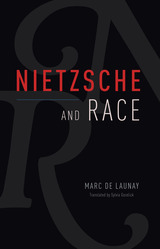
The caricature of Friedrich Nietzsche as a proto-Nazi is still with us, having originated with his own Nazi sister, Elisabeth Förster, who curated Nietzsche’s disparate texts to suit her own purposes. In Nietzsche and Race, Marc de Launay deftly counters this persistent narrative in a series of concise and highly accessible reflections on the concept of race in Nietzsche’s publications, notebooks, and correspondence. Through a fresh reading of Nietzsche’s core philosophical project, de Launay articulates a new understanding of race in Nietzsche’s body of work free from the misunderstanding of his detractors.
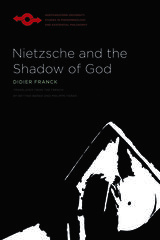
Bergo and Farah’s clear translation introduces this work to an English-speaking audience for the first time.
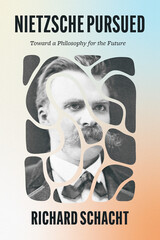
Nietzsche advocated for a post-theistic “philosophy of the future”—a new approach to human reality that would bend Western thought away from nihilism in a life-affirming, value-creative direction. His early demise left this endeavor only just begun. In Nietzsche Pursued, Richard Schacht examines Nietzsche’s revisionist approach to familiar philosophical topics, exploring how some may be further pursued in Nietzschean ways.
Each chapter focuses on one topic that is central to Nietzsche's vision of what philosophy can and should be and do. Among them: his kind of naturalism, humanity, perspectivism, morality, and music. Building on his analysis in Nietzsche’s Kind of Philosophy, Schacht invites readers to see with new appreciation the ongoing significance of Nietzsche’s thought for philosophy’s future.
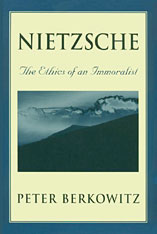
Once regarded as a conservative critic of culture, then enlisted by the court theoreticians of Nazism, Nietzsche has come to be revered by postmodern thinkers as one of their founding fathers, a prophet of human liberation who revealed the perspectival character of all knowledge and broke radically with traditional forms of morality and philosophy.
In Nietzsche: The Ethics of an Immoralist, Peter Berkowitz challenges this new orthodoxy, asserting that it produces a one-dimensional picture of Nietzsche's philosophical explorations and passes by much of what is provocative and problematic in his thought. Berkowitz argues that Nietzsche's thought is rooted in extreme and conflicting opinions about metaphysics and human nature. Discovering a deep unity in Nietzsche's work by exploring the structure and argumentative movement of a wide range of his books, Berkowitz shows that Nietzsche is a moral and political philosopher in the Socratic sense whose governing question is, "What is the best life?"
Nietzsche, Berkowitz argues, puts forward a severe and aristocratic ethics, an ethics of creativity, that demands that the few human beings who are capable acquire a fundamental understanding of and attain total mastery over the world. Following the path of Nietzsche's thought, Berkowitz shows that this mastery, which represents a suprapolitical form of rule and entails a radical denigration of political life, is, from Nietzsche's own perspective, neither desirable nor attainable.
Out of the colorful and richly textured fabric of Nietzsche's books, Peter Berkowitz weaves an interpretation of Nietzsche's achievement that is at once respectful and skeptical, an interpretation that brings out the love of truth, the courage, and the yearning for the good that mark Nietzsche's magisterial effort to live an examined life by giving an account of the best life.

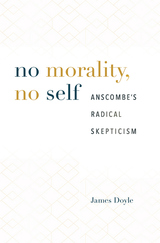
Frequently cited and just as often disputed, Elizabeth Anscombe’s “Modern Moral Philosophy” (1958) and “The First Person” (1975) are touchstones of twentieth-century analytic philosophy. Though the arguments Anscombe advances in these papers are familiar to philosophers, their significance remains widely misunderstood, says James Doyle.
No Morality, No Self offers a fresh interpretation of Anscombe’s still-controversial theses about ethical reasoning and individual identity, specifically, her argument that the term “moral” (as it occurs in such contexts as “moral obligation”) is literally meaningless, and that “I” does not refer to some special entity called a “self”—a pair of claims that philosophers have responded to with deep skepticism. However unsettling Anscombe’s conclusions may be, Doyle shows the underlying seriousness of the British philosopher’s reasoning, exposing with clarity and concision how the counterarguments of Anscombe’s detractors are based on a flawed or incomplete understanding of her ideas.
Doyle zeroes in on the central conundrum Anscombe posed to the referentialist school: namely, that it is impossible to give a noncircular explanation of how “I” refers to the person who utters it. He shows where the refutations of philosophers including Lucy O’Brien, Gareth Evans, and Ian Rumfitt fall short, and throws light on why “I” developed features that make it look as if it functions as a referring expression. Reconciling seemingly incompatible points of view, Doyle argues that “I” does refer to a self, but not in a way anyone suspected—a surprising conclusion that is entirely à propos of Anscombe’s provocative thought.
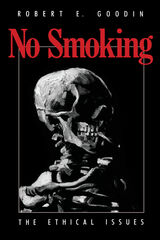
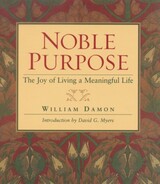
This book describes the personal and spiritual benefits of living life in a way that matters, with an awareness that one's life can reflect a sense of higher purpose no matter what the circumstances. The book draws upon religious, philosophical, and literary writings to show how humans in many cultures and historical epochs have pursued noble purposes by answering God's call as each hears it.
Noble purpose can be pursued both in heroic acts and in everyday behavior. The book shows how ordinary people—teachers, business professionals, parents, citizens—can ennoble what they do by being mindful of its deepest meaning. It also points out that humility is a necessary virtue for those who pursue a noble purpose. Great heroes are bold, courageous, and sometimes audacious in their determination to succeed; but they are also humble in their awareness of their own limitations. Moreover, a person must never violate basic moral laws while pursuing a noble purpose—the means must be as moral as the ends.
Purpose brings coherence and satisfaction to people's lives, producing joy in good times and resilience in hard times. It also presents a paradox: hard work in service of noble purpose that transcends personal gain is a surer path to happiness than the self-indulgent pursuit of happiness for its own sake. The closer we come to God's purpose for us, the more satisfied our lives become.
From the inspiration and examples conveyed in this book, we learn that all individuals have the capacity to discover their own God-given abilities, to learn the world's need for the services they can provide, and to experience joy in serving society and God in their special ways. As theologian Frederick Buechner writes, "The place God calls you to is the place where your deep gladness and the world's deep hunger meet."
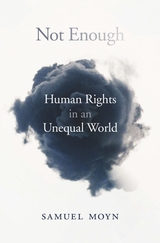
“No one has written with more penetrating skepticism about the history of human rights.”
—Adam Kirsch, Wall Street Journal
“Moyn breaks new ground in examining the relationship between human rights and economic fairness.”
—George Soros
The age of human rights has been kindest to the rich. While state violations of political rights have garnered unprecedented attention in recent decades, a commitment to material equality has quietly disappeared. In its place, economic liberalization has emerged as the dominant force. In this provocative book, Samuel Moyn considers how and why we chose to make human rights our highest ideals while simultaneously neglecting the demands of broader social and economic justice.
Moyn places the human rights movement in relation to this disturbing shift and explores why the rise of human rights has occurred alongside exploding inequality.
“Moyn asks whether human-rights theorists and advocates, in the quest to make the world better for all, have actually helped to make things worse… Sure to provoke a wider discussion.”
—Adam Kirsch, Wall Street Journal
“A sharpening interrogation of the liberal order and the institutions of global governance created by, and arguably for, Pax Americana… Consistently bracing.”
—Pankaj Mishra, London Review of Books
“Moyn suggests that our current vocabularies of global justice—above all our belief in the emancipatory potential of human rights—need to be discarded if we are work to make our vastly unequal world more equal… [A] tour de force.”
—Los Angeles Review of Books
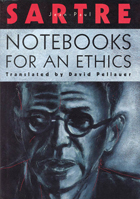
In the famous conclusion to Being and Nothingness, Sartre announced that he would devote his next philosophical work to moral problems. Although he worked on this project in the late 1940s, Sartre never completed it to his satisfaction, and it remained unpublished until after his death in 1980. Presented here for the first time in English, the Notebooks reveal Sartre at his most productive, crafting a masterpiece of philosophical reflection that can easily stand alongside his other great works.
Sartre grapples anew here with such central issues as "authenticity" and the relation of alienation and freedom to moral values. Exploring fundamental modes of relating to the Other—among them violence, entreaty, demand, appeal, refusal, and revolt—he articulates the necessary transition from individualism to historical consciousness. This work thus forms an important bridge between the early existentialist Sartre and the later Marxist social thinker of the Critique of Dialectical Reason. The Notebooks themselves are complemented here by two additional essays, one on "the good and subjectivity," the other on the oppression of blacks in the United States.
With publication of David Pellauer's lucid translation, English-speaking readers will be able to appreciate this important contribution to moral philosophy and the history of ethics.
Jean-Paul Sartre (1906-1980) was offered, but declined, the Nobel Prize for literature in 1964. His many works of fiction, drama, and philosophy include the monumental study of Flaubert, The Family Idiot, and The Freud Scenario, both published in translation by the University of Chicago Press.
READERS
Browse our collection.
PUBLISHERS
See BiblioVault's publisher services.
STUDENT SERVICES
Files for college accessibility offices.
UChicago Accessibility Resources
home | accessibility | search | about | contact us
BiblioVault ® 2001 - 2024
The University of Chicago Press









